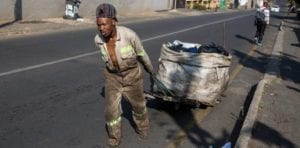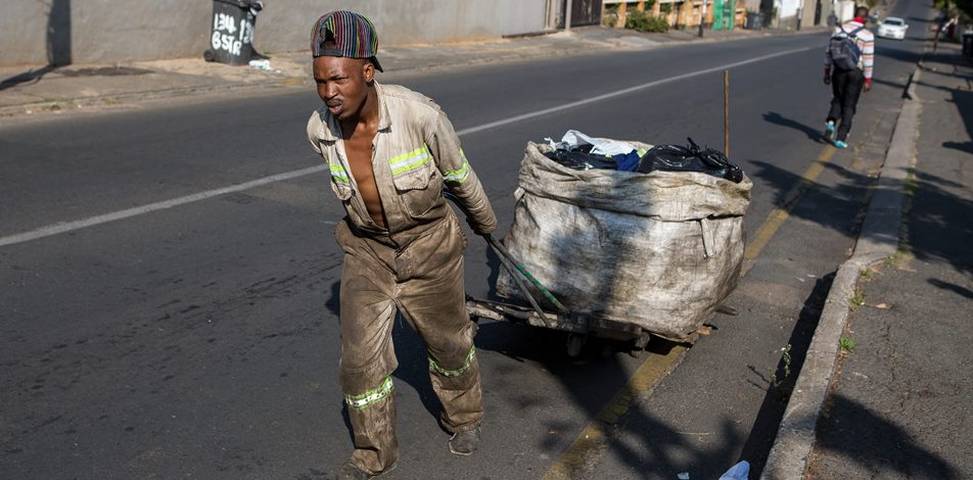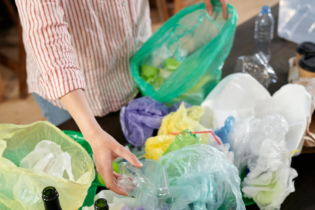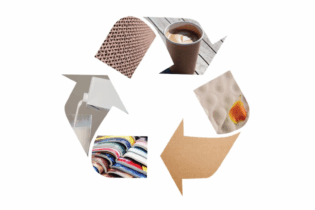At the handing over of the trolleys, the department’s deputy minister Barbara Thomson highlighted the importance of supporting waste management initiatives as they contribute to job creation.
“Recycling has enormous economic potential,” Thompson said. “Conservative estimates put the financial value of the formal South African waste sector at R15 billion. It is time that we wake up to this economic potential of recycling,” she added. Thompson called on local businesses and entrepreneurs to explore the economic opportunities provided through waste recycling and appealed for the involvement of youth and women, as she said they were most affected by unemployment and poverty.
Many determined South Africans make a living through the creation of informal jobs, and in Mooi River, KwaZulu-Natal, waste pickers are being assisted with what they need the most – trolleys.
The South African Waste Pickers Association recently donated new waste picker trolleys to 15 people in the area. This initiative was part of the Imbizo Focus Week.
For many individuals who seek employment, waste has become their source of income. The department of environmental affairs described waste picking as “a livelihood that is accessible to marginalised individuals of society”.
“These individuals have in the past converted retail store trolleys into a convenient mode of transport to move the collected waste material to a buy-back centre with ease,” the department said in a statement.
A significant shift in waste management was seen in July 2009 when the National Environmental Management: Waste Act (NEMWA), 2008 (Act No. 59 of 2008) came into effect.
“This introduced the waste management hierarchy approach which advocates for waste avoidance, reduction, reuse, recycling, recovery as priority options before treatment, and the disposal of waste, which is the last resort,” the department said.









